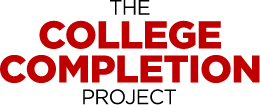
The University of Utah is leading more students to college completion.
It is widely accepted that a college degree provides life-long benefits that range from increased earnings to better physical and mental health. Higher education institutions have made strides in providing access to a wider, more diverse population of students than ever before. But, in the words of University of Utah President Ruth Watkins, access without completion is a hollow promise of a better future.
Many institutions, including the University of Utah, have significantly increased their graduation rates over the past decade. At the University of Utah, for example, the rate has increased 19 percentage points to 70%. The challenge: How can colleges move those rates even higher?
That question drew representatives from 22 institutions across the country to the University of Utah’s campus Sept. 30-Oct. 1, 2019, to discuss college completion challenges and opportunities. Lumina Foundation co-hosted The College Completion Summit, the first event in the University of Utah’s College Completion Project.
Attendees shared best practices and strategies and offered insights into obstacles and challenges that lie ahead as institutions work to help more students finish their degrees. Below you’ll find stories and podcasts from each panel discussion.
Going forward, The College Completion Project will continue to offer the latest news and insights about how institutions are working to advance graduation rates.
![]()
GradUATION Rate Trends 2008-2018
Average trend (% POINTS) for doctoral-granting institutions
Publics
of Utah
The U has increased the
grad rate from 51% to 70%
over the past decade
![]()
About the College Completion Summit
Lumina Foundation co-hosted The College Completion Summit, the first event in the University of Utah’s College Completion Project. Representatives from more than 30 higher education institutions and organizations from across the country came to the University of Utah during Fall 2019 to discuss college completion challenges and opportunities. At the summit, senior representatives from the public research universities who had significantly advanced their completion rates presented best practices and strategies to help more students finish their degrees.

![]()
The College Completion Conversation
Below you’ll find videos, stories and podcasts from the Summit that add to the college completion conversation. Going forward, The College Completion Project will continue to offer the latest news and insights about how higher education leaders are working to advance graduation rates.
WELCOME
Ruth Watkins, president of the University of Utah, and Terri Taylor, strategy director for postsecondary finance at Lumina Foundation, set the stage for The College Completion Summit held Sept. 30-Oct. 1 in Salt Lake City, Utah.
SUPPORTING AND ENGAGING THE STUDENT
Cultural shifts are vital to engage students in ways that boost their degree completion success.
INNOVATIVE FINANCIAL AND AFFORDABILITY SOLUTIONS
Changing demographics—and the financial burdens they impose—are major reasons students are taking longer to graduate or are giving up completely.
LEVELING THE PLAYING FIELD: ACHIEVING EQUITY IN COMPLETION
A look at strategies higher education institutions are using to close equity gaps in college completion.
DATA AND TECHNOLOGY CONTRIBUTIONS TO COMPLETION
As data strategies evolve on college campuses, best practices use a combination of high tech and “high touch” to help students succeed.
COMPLETION AND PUBLIC PERCEPTION
A look at discontent about the role of colleges and universities in society and where that sentiment is strongest.
WHAT’S NEXT TO MOVE THE NEEDLE ON COMPLETION?
How can higher education leaders continue to increase six-year graduation rates in a world of accelerated change?
Have Questions or Comments?
Contact Courtney McBeth, special assistant to the President, for more information.
